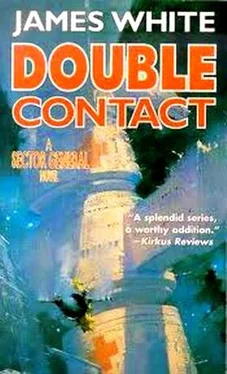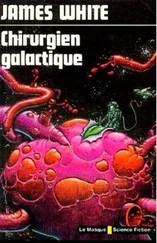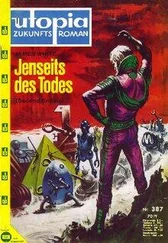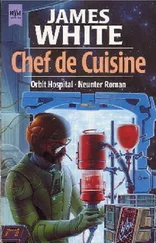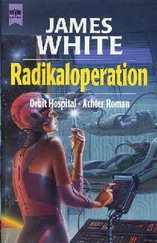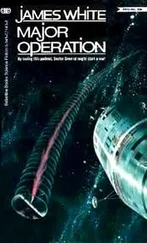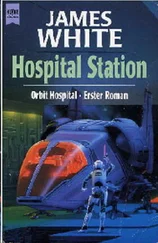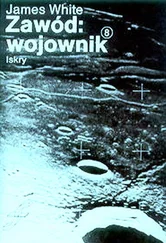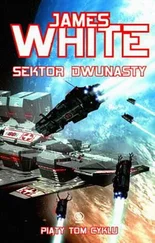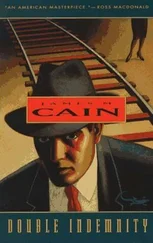James White
Double Contact
Sector General 12
The late afternoon sun, its outlines shredded by ground-heat distortion and the continuous toxic gales that swept the planet, wavered in and out of visibility in the brown sky like a dull red and ragged-edged flag. When it set in a few hours’ time there would be total darkness. The moon was too dim to be seen through the turbulent and nearly opaque atmosphere, and the stars had not been visible from the surface for close on three centuries.
The world that was Trolann raged and stormed and stank all around them as they paused for a moment outside the first of the series of detoxification chambers that gave access to their underground home, because they wanted to look at the familiar and abhorrent scenery for what would be the last time.
Their lifesuit sensors told of a film of insects and windblown spores that were trying vainly to penetrate the superfine joints in the mechanisms that provided ground mobility, and kept their visors clean so that they could see virtually nothing with more clarity.
“Not a druul in sight,” said Jasam. “It’s safe to go in.”
He pressed the activator on the first entry seal with the suit’s forward manipulator, then swept it around to indicate the dull, wavering sun, the driving, poisonous fog and the blurred outlines of the surface extensions of their neighbors’ homes. He looked at Keet and sighed.
“We had a good life together here,” he said, “and for the next few days” — he made an attempt to lighten their mood as he went on" this hi-tech hole in the ground will be a very happy home.”
“Until we find a new one,” said Keet, impatient as always when he stated the obvious. “I’m hungry and I want us out of these things.”
“Me, too,” said Jasam with enthusiasm; then, in a more reasonable voice he went on. “But there’s no need to be hungry. The suit food is no worse than the stuff in the larder. Since our final selection it’s been the best available. So go ahead and eat; that’s as good a way as any of passing the decontamination time.”
“No,” said Keet firmly. “I want us to eat together, every chance we get while we still can, and not separately like a couple of working colleagues. Sometimes, Jasam, you display the romantic sensitivity of, of a druul in heat.”
He did not have to answer this grossest of all personal insults because they both knew that she was joking, and that people only joked about that particular form of hellish Trolanni life in an attempt to hide their utter fear and loathing for it. Besides, his answer would come later in actions rather than words.
Neither of them made use of their built-in food supply while their suits went through the slow, tedious, but absolutely necessary stages of surface cleansing with disinfectant sprays, surface irradiation, and flash heating. Many of the microorganic and insect life-forms that had recently evolved on the surface, when given the chance to penetrate the defenses of a Trolanni household, had proved themselves capable of wiping out the occupants in a few minutes. But when they both finally emerged into the core living quarters, they were as sure as it was possible to be that they were free of unwanted organic company.
Jasam stood for a moment looking at Keet, or rather at the delicately contoured head, shapely body, and short, tapering limbs of her lifesuit, while she stared back at the taller, more ruggedly handsome, and well-muscled shape that he wore. Protective suits were invariably as well-formed and lifelike as their owners could afford. While still young adults, Keet and himself had progressed to a level of excellence in their field where they could afford the best. But the people inside those realistic lifesuits were much smaller, more sickly, and, regrettably, not nearly as beautiful as their handsome body coverings.
Outside them, however, they could touch each other without a cybernetic interface diluting or crudely enhancing every tactile sensation.
With intense but controlled impatience he detached himself from the suit’s visual, aural, and tactile relays, its food and water spigots, and, even more cautiously, from the deeply implanted waste-elimination systems. He had extricated himself before she did, and watched her lovingly as she opened the long, abdominal seal and struggled free like an adult newborn climbing slowly out of its mother’s womb.
Her body, as did his own, showed the areas of rash, the skin discoloration, the pocking and scars of past skin eruptions that were the visible inheritance of living in an environment that no longer supported their kind of life. But she looked little different from the time he had seen her like this on their first night of mating, and she was beautiful. When she freed herself, their beautiful and handsomely proportioned lifesuits were left lying lifelessly on the floor as they crawled eagerly towards each other.
When they had to pause for a necessary rest, they ate a meal to which Keet had added various decorative and olfactory touches to disguise the taste of their standard, aseptic, and machine-processed food. But the searchsuit project chief had told them that their unsuited time together would be limited to the next three days, and eating and resting was not what they most wanted to do together. They tried not to talk about the project, but there were times when their physical and emotional resistance was so low that the subject sneaked up on them.
“I’m not complaining, mind,” said Keet, “but after three days of this we won’t be at our best for the surgeons. We’ll be, well, very tired.”
“They won’t mind that,” Jasam replied reassuringly. “You weren’t listening between the lines during our last interview. Suit-insertion surgery, especially into an experimental one of this complexity, will be a lengthy, unpleasant procedure that requires conscious, cooperative, and relaxed subjects. Don’t worry, about it. At least we’ll be in a physically relaxed condition before they go to work on us.”
Even though they were already pressed together so tightly that such a thing was physically impossible, Keet tried to snuggle even closer. She said softly, “This is how babies are made.”
“Not for us,” he replied sharply, and tried without much success for a gentler tone as he went on. “If that had been possible, if either of us had been healthy enough and fertile, we would never have been allowed to volunteer, much less be accepted for Searchsuit Three. Instead we would have been buried more deeply and protected behind even more detoxification chambers than we have here, and given every comfort a mortal Trolanni could desire while teams of doctors tried to provide the medical and psychological support that might enable the sickly members of our poisoned species to procreate and our civilization to survive beyond the next few generations. The emotional feelings or otherwise of the couples concerned for each other would not have been the prime consideration. Survival would have been a necessity, an artificially-supported evolutionary imperative rather than a pleasure.”
Once again Keet’s expression was reflecting her impatience at being reminded of things she had not forgotten, and he was anxious not to spoil even a moment of their remaining touching time together.
“We would be even more debilitated than we are now,” he added quickly, “but without having as much fun.”
Even though the honor of being chosen to wear a searchsuit was greater than that previously accorded to any two members of their race, the pride they both felt was intense, so much so that there was little room in their minds for personal fear. But they did not speak of the project again, and neither did they look at the container that housed the tiny, hermetically-sealed, and triple-protected sphere with its short-duration life support into which they would climb when the project engineers signaled that they were ready for the crew insertion. The few hours spent in that sphere, while it was being transported under maximum protection from their home to the project surgery, would be the last they could ever spend in physical contact with each other.
Читать дальше
